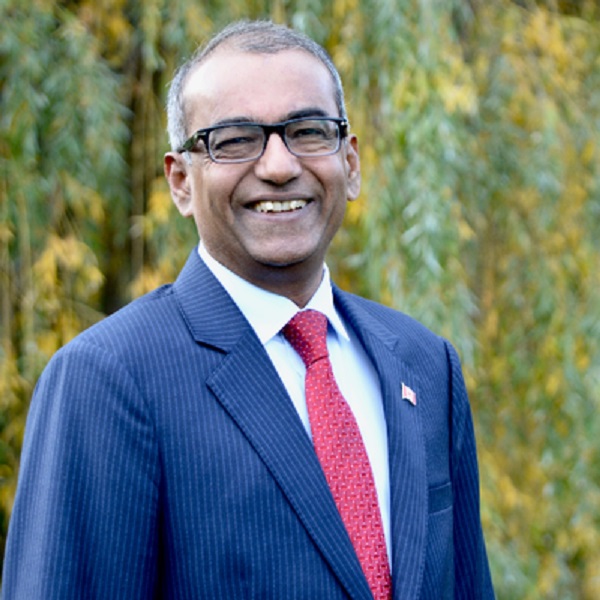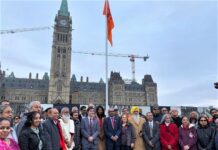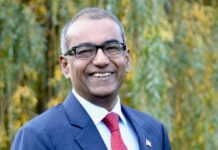Bengaluru, India (IANS): The video of a speech in Kannada — spoken mainly by the people of the southwestern Indian state of Karnataka — by Canadian parliamentarian Chandra Arya in Canada’s House of Commons has gone viral on the social media. The gesture of love for his mother tongue is being appreciated all over the country.
Arya wrote on Twitter: “I spoke in my mother tongue (first language) Kannada in Canadian parliament. This beautiful language has long history and is spoken by about 50 million people. This is the first time Kannada is spoken in any parliament in the world outside of India.”
Arya addressed the Canadian parliament: “Respected chairperson, I am happy that I got an opportunity to address the Canada parliament in my mother tongue. It is a matter of pride for 5 crore [50 million] people of Karnataka that a person from the village Dwalalu in Sira taluk of Tumakuru district has been elected as the member of Parliament in Canada and addressing the house in his language.
I spoke in my mother tongue (first language) Kannada in Canadian parliament.
This beautiful language has long history and is spoken by about 50 million people.
This is the first time Kannada is spoken in any parliament in the world outside of India. pic.twitter.com/AUanNlkETT— Chandra Arya (@AryaCanada) May 19, 2022
“In 2018, Kannadigas of Canada have celebrated the Kannada Rajyotsava Day in the parliament. I will end my address with the lines of a song written by Rashtrakavi Kuvempu and sung by late Kannada cinema legend Dr Rajkumar, ‘no matter wherever you are, be a Kannadiga’. Thank you Chairman.”
The video shows other Canadian parliamentarians applauding. The 59-second video has been shared by dignitaries including Karnataka Higher Education Minister C.N. Ashwath Narayan.
According to Wikipedia: “Kannada is a Dravidian language spoken predominantly by the people of Karnataka in the southwestern region of India. The language is also spoken by linguistic minorities in the states of Maharashtra, Andhra Pradesh, Tamil Nadu, Telangana, Kerala and Goa; and also by Kannadigas abroad. The language had roughly 43 million native speakers by 2011. Kannada is also spoken as a second and third language by over 12.9 million non-native speakers in Karnataka, which adds up to 56.9 million speakers.”













